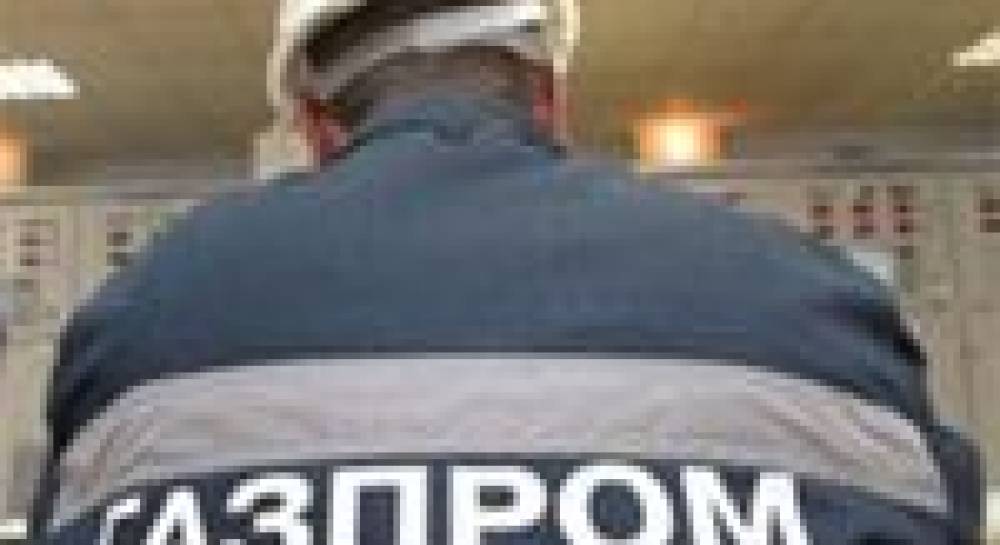
Heat rises in Russia-Ukraine gas talks - FT
Every year, Russia and Ukraine pledge to end their high-stakes annual gas negotiations well before winter. And for the fourth year running, the January 1 contract deadline is looming with no agreement in sight...
Every year, Russia and Ukraine pledge to end their high-stakes annual gas negotiations well before winter. And for the fourth year running, the January 1 contract deadline is looming with no agreement in sight.
“We spend every new year waiting to sign an agreement,” says one gas trader. “I make money but I am tired of making it this way.”
Tension is particularly high this year because of Moscow’s intervention in Georgia, a power vacuum in Ukrainian politics and the global economic crisis, which is increasing pressure on Gazprom, the state-controlled Russian gas group, to extract a big price rise.
Yulia Tymoshenko, prime minister of Ukraine, is also determined to implement a deal agreed with Vladimir Putin, her Russian counterpart, to cut “corrupt” intermediaries from the gas trade. She wants to exclude Rosukrenergo, a joint venture between Gazprom and Dmitry Firtash, a Ukrainian billionaire gas trader. The Swiss-registered company says it is fully transparent and intends to keep its contractual role.
Alexander Medvedev, the Gazprom deputy chief executive, has warned the European Union that the two countries are “far away from a settlement”, raising fears of disruption to EU supplies similar to that caused by the price dispute in 2005-06 and, to a lesser extent, in March 2008. Gazprom supplies 25 per cent of the EU’s gas, mostly via Ukraine.
The three key issues are price, Ukraine’s unpaid arrears, and the intermediaries. Russia has increased its prices to former Soviet republics since 2003 from $50 per thousand cubic metres, with the largest rises hitting the two countries that have tried to break out of Moscow’s political orbit – Ukraine and Georgia.
Next year Gazprom wants another big increase from Ukraine, from $179.50 per 1,000 cu m to $400 – close to what Germany pays. Naftogaz, Ukraine’s state gas company, want to keep the price it pays at about $250, not least because the Ukrainian hryvnia has dropped 30 per cent against the dollar this year and could slide further. With its economy set for recession in 2009, Kiev fears the impact of higher gas prices on a country that has already needed International Monetary Fund support.
Ukraine wants to replace today’s ad hoc negotiated prices with a long-term agreement pegged to world oil prices. This could reduce disputes and lead to cuts in gas prices in late 2009, when rolling six-month average oil prices – which could be the basis of a peg – are expected to fall sharply. Yet Russian economic growth has plummeted from more than 7 per cent to about 3 per cent. The state is running down its huge financial reserves by supporting the rouble and refinancing banks. With or without a new price formula, Gazprom is keen maintain export prices.
It also insists that Ukraine settle unpaid gas bills worth $2.4bn (?1.7bn, £1.6bn) – an amount Ukraine disputes. The IMF says Kiev has the means to pay. But there is speculation in Ukraine that Moscow wants it to settle by transferring assets, notably a stake in Ukraine’s vast pipeline network. The ageing network needs investment, for which Ukraine may require partners. But selling stakes to foreigners, especially Russians, would be politically unacceptable.
In the middle of the dispute sits Rosukrenergo. In taking a soft approach towards Moscow over Georgia, Ms Tymoshenko appears to have won favour with Mr Putin and may get her way over Rosukrenergo.
The company has a contract to supply all Ukraine’s imported gas, 55bn cu m annually, which it buys from central Asian countries and ships via Gazprom. The $1bn annual losses made on the trade are offset by gains from a second contract to ship 15bn cu m across Ukraine into the EU. Even allowing for transit fees, this is very profitable. Last year the company made $867m pre-tax profits on sales of $9.9bn.
The US has criticised this arrangement, but the EU has been cautious. Edward Chow, a fellow at the Center for Strategic and International Studies in Washington, says “the critical question” is what Rosukrenergo does to secure gas worth billions a year. “What service does it perform that Gazprom and Naftogaz cannot do for themselves?” asks Mr Chow.
Even if Rosukrenergo were squeezed from Ukraine’s import trade, it could remain a big player in gas if it kept its transit contract. Mr Firtash’s holding company, Group DF, has also invested heavily in Ukraine’s domestic distribution market and in central Europe. Whatever the outcome of the talks, Ms Tymoshenko will struggle to fulfill her aim.

